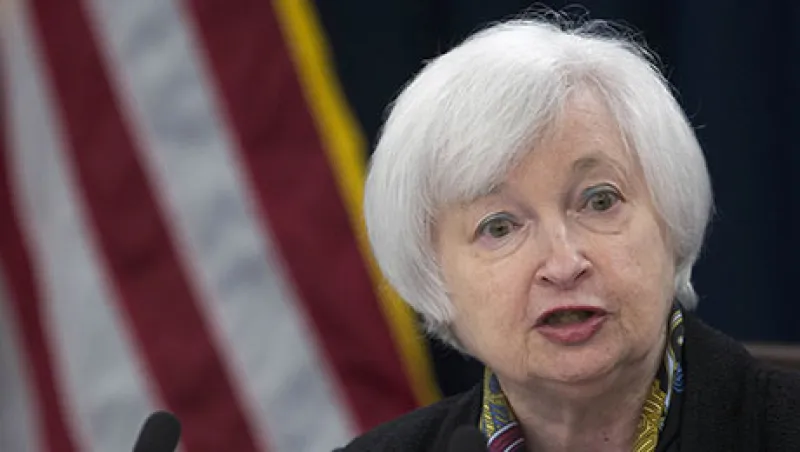Monday, September 19: The World Bank holds its seventh Global Pension and Savings Conference in Washington. A report last month by the Pew Charitable Trusts estimated the shortfall among individual U.S. states to exceed $1 trillion.
Tuesday, September 20: Memphis-based global shipping and logistics company FedEx Corp. releases fiscal first-quarter financial results after market close. The company, whose stock is considered a bellwether for the overall economy, has beaten consensus analyst estimates for three consecutive quarters. Many analysts expect that a stabilizing macro environment over the three-month period ending in August was positive for the delivery firm’s bottom line. One potential dark cloud on FedEx’s horizon is the recent move by Amazon.com to operate its own air fleet.
Wednesday, September 21: The Global Symposium on Innovative Financial Inclusion, organized by the World Bank and Bank Negara Malaysia, gets underway in Kuala Lumpur. Global monetary and fiscal policy leaders, as well as private sector players, will discuss ways to bring the estimated 2 billion adults worldwide who are excluded from the worldwide financial system. Among the topics discussed will be the impact of mobile phone banking on monetary infrastructure in the developing world.
Wednesday, September 21: Both the Bank of Japan and the U.S. Federal Reserve are making monetary policy statements. While derivatives markets linked to interest rates suggest that the majority of investors expect no action from Fed Chair Janet Yellen and her fellow members of the Federal Open Market Committee just yet, opinions are mixed on what the Bank of Japan has in store. Some analysts have noted that Haruhiko Kuroda, governor of the Japanese central bank, and his colleagues may be tempted to announce an expansion of its quantitative easing program in part to offset the risk of a surprise tightening in the U.S. This past week Yasutoshi Nishimura, a senior economic advisor to Prime Minister Shinzo Abe, defended the use of negative interest rates as a positive catalyst for growth after comments in public by senior executives at banks that have suffered severe margin compression as a result.
Thursday, September 22: The National Association of Realtors releases data on U.S. existing homes sales. Expectations are for a strong showing, despite a slip in July when the annualized pace of transactions declined by 3.2 percent to a projected 5.39 million. Many property analysts concede, however, that the market may have hit a saturation point with key markets showing signs of softening in recent months. Last week the California Association of Realtors reported a 2.2 percent year-over-year contraction in single-family home sales.
Friday, September 23: For decades, city leaders in Las Vegas have worked to broaden the appeal of the desert oasis town beyond gambling, nightly concerts by maturing pop stars and all-you-can-eat buffets. This past week, the Southern Nevada Tourism Infrastructure Committee gave the nod to $750 million of funding toward a stadium for the new home of the National Football League franchise presently known as the Oakland Raiders. In the meantime, food lovers and music aficionados can sate themselves with the Life is Beautiful festival, a three-day festival featuring works by local and international artists; stands with food by celebrity chefs, and three days of concerts. Headliners on the 2016 include electronic act Major Lazer and U.K. indie-folk group Mumford & Sons. (Of note to Institutional Investor’s readers: The father of Mumford banjoist Winston Marshall is Paul Marshall, cofounder of $22 billion London-based hedge fund firm Marshall Wace).






